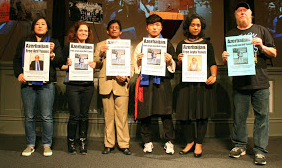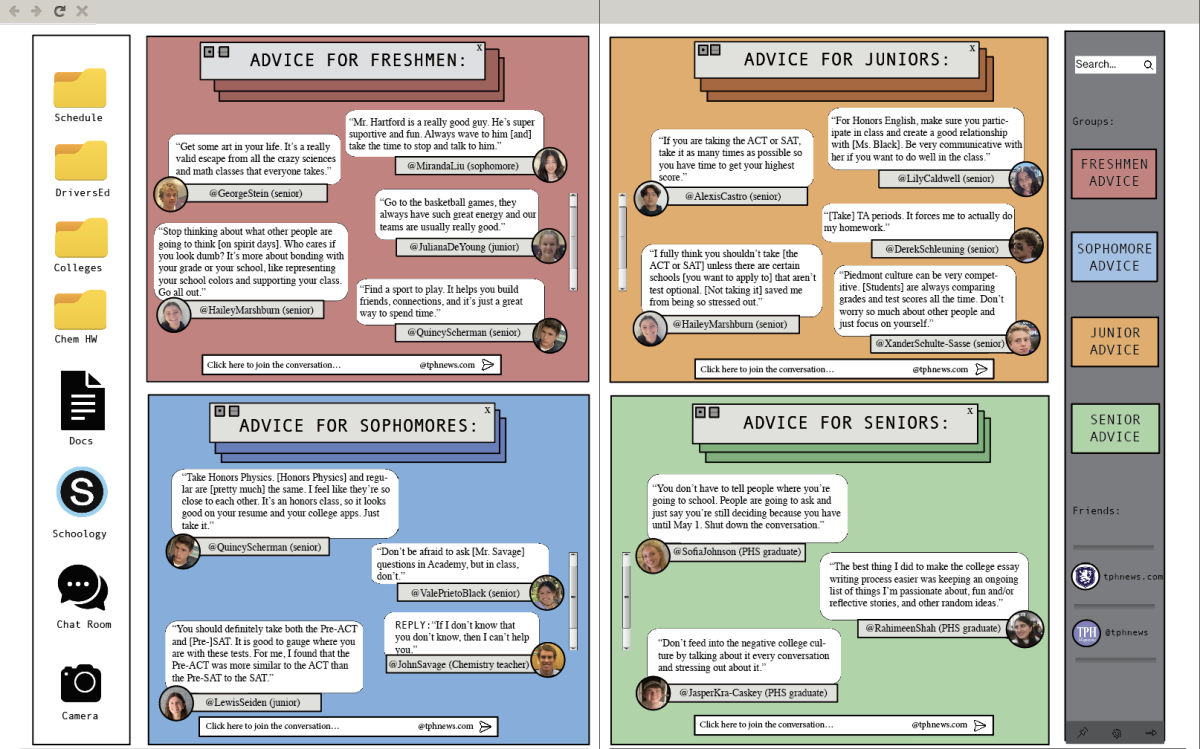 In a sea of several hundred high school students, slipping in three new faces barely causes a ripple. But for siblings Norbu Tenzin, Tenzin Dadon and Dolma Lhamo, it’s still easy to feel like fish out of water.
In a sea of several hundred high school students, slipping in three new faces barely causes a ripple. But for siblings Norbu Tenzin, Tenzin Dadon and Dolma Lhamo, it’s still easy to feel like fish out of water.
Born in Lhasa, Tibet, MHS students junior Norbu, sophomore Tenzin and freshman Dolma will soon complete their first year of school in America. The three moved to the Bay Area with their older brother from Dharamsala, India last March to live with their mother, who had been here for two years.
Food tastes different — it’s fattier. San Francisco is different — it’s bigger. English Language Development teacher Rosie Reid noticed even their eye contact is different — it’s less direct. While MHS boasts more diversity than PHS, it’s still a really hard community to be different in, Reid said.
Despite the difficulties that accompany these differences, the Tibetan trio has already begun to shape new and improved lives for themselves — even channeling their differences into eliciting change. On April 17, Norbu traveled to New York City to speak at the Amnesty International’s “Get On the Bus” event, an “annual day of human rights education and activism” attended by a cascade of up to 1,200 participants, according to the event’s website.
“I was kind of nervous but then I told myself that I should represent the Tibetans and not let them down, so that helped me,” 17-year-old Norbu said.
Norbu advocated for Tibetan rights, a topic especially relevant to both him and his family given the Chinese government’s treatment of his father Dhondup Wangchen, whom Norbu and his siblings have not seen since 2007.
In 2009, the Chinese government sentenced Dhondup to six years in prison after he created a documentary called Leaving Fear Behind in 2008, a series of interviews with Tibetans on what they thought of the Beijing Olympics and the Chinese government.
Dhondup was released in June 2014, currently lives in Tibet and will join his family after paperwork is processed, which his daughter Tenzin said may take years.
At the time of Dhondup’s arrest, his family lived in Dharamsala, where His Holiness the Dalai Lama and the Central Tibetan Administration make their home.
“We had specially developed schools to conserve our languages, so my parents thought it would be better if we moved to India to learn our own culture,” Norbu said.
Tenzin remembers the day her family found out about the sentence. It was the first day of their school winter vacation and she had just returned from the market and the temple with her mother.
“My mom got a call from Switzerland so she said we had to get back to our house,” Tenzin said. “She went to the roof to talk with my dad’s brother who’s in Switzerland. When she came back she was crying and said my dad had been sentenced for six years.”
Dolma was seven and Tenzin was nine years old. Their oldest brother Tashi Tsering, who is now working, was 13 years old.
Norbu was in fifth grade when his father was arrested, realizing the gravity of the situation when he saw his father on television. He said that people had higher expectations of him after his father’s incarceration even though he had been living in India for years.
“He was considered a Tibetan national hero or something like that,” Norbu said. “The teachers used to say, ‘You need to do much better than others,’ so there was a big pressure. ”
While Norbu understands their point of view, he does not feel that others should hold him up to different standards just because of his father’s work.
“I think every Tibetan in exile should do equally as much,” Norbu said.
Their mother took on raising the four children alone after her husband’s incarceration.
“At my boarding school, during the weekends parents of other students would come to meet them, but my parents never came and I missed them very much,” Tenzin said.
Since then, their family has continued to move forward. After living with their mother’s niece in Dharamsala, the children moved to California. During the week they live in Oakland at their mother’s friend’s house, moving to San Francisco on the weekends.
The three arrived with limited English, but have improved their language skills with the help of Reid in ELD and Elise Marks in English class.
“They know how to do the work in a way that shows,” Reid said. “They read every page meticulously now and annotate every page in the required reading.”
 Beyond improving her students’ English, Reid aims to facilitate positive interactions between them and others in the community. The trio has gotten help on extracurricular tasks too, as Reid helped Norbu with writing his ten-minute speech for New York and helps all three siblings adapt to the unspoken customs of a new school and culture.
Beyond improving her students’ English, Reid aims to facilitate positive interactions between them and others in the community. The trio has gotten help on extracurricular tasks too, as Reid helped Norbu with writing his ten-minute speech for New York and helps all three siblings adapt to the unspoken customs of a new school and culture.
“We’ll talk about a conversation they’re about to have with their teachers in advance and how they should approach it, then I’ll email the teacher that the conversation is about to happen,” Reid said. “Teachers might not realize how much coaching had to go into that interaction.”
The siblings said that they like MHS because of its small class sizes and helpful and nice teachers. In turn, their teachers have observed them asserting more confidence in their studies and communication.
“The last vocab test Tenzin wrote terrific sentences that were better than my students who are native English speakers,” Marks said.
Beyond school, the siblings have discovered new avenues of life to explore. For example, Norbu enjoys photography and attended a film program last fall. With Students for a Free Tibet, he peacefully protested at the Chinese Embassy in San Francisco on April 24. Still, all three of them cannot help but long for aspects of life in Dharamsala.
“I miss the junk food,” Dolma said.
Tenzin has seen two of her best friends from Dharamsala in California, but Norbu and Dolma have not.
“We didn’t get to say goodbye to our friends,” Dolma said.
As for family, eight years of separation has limited but not severed the family’s connection with Wangchen. They communicate with phone calls, video chat and WeChat, a messaging app popular in China.
“I want to make friends and hang out with them — it would be fun,” Dolma and Tenzin said.
Different opportunities lie in store for each of the three siblings, but they all agree that more people should educate themselves about current events in Tibet. And, of course, seeing their father would be nice too.










































